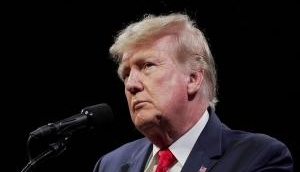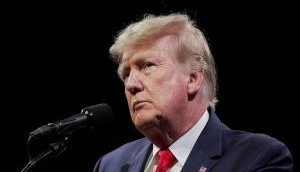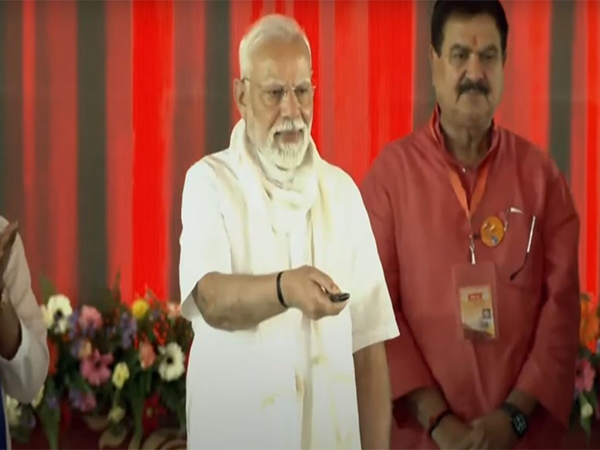#ParisAttacks: France should learn from US mistakes post 9/11

While the French authority tries to identify the identities of the terrorists and their supporters who carried out the carnage, victims of the horror attacks in Paris are still searching for their loved ones and grieving for the victims who are from 12 nationalities so far (French, German, British, Tunisian, Egyptian, Moroccan and American among others).
Those who pulled the trigger did not bother what nationalities they were targeting, nor did they cover their faces to hide their own identity. They simply came to kill and die. Undoubtedly, it was a criminal act carried out by fanatics (Takfirist), who were educated from the same school of Al Qaeda in Afghanistan and who followed the same books of Ibn Taimiyyah and Muhammad ibn Abd al-Wahhab.
Ironically, they were supported by the same countries that uphold values of liberty, democracy and freedom. It is insane, innocent people are slaughtered and revenge attacks have already started. We should not fall prey to George W Bush's style and equate the attack with what happened on 11 September, 2001 in the US. We need to address the real causes rather than treating the symptoms.
"Good Al Qaeda" vs "Bad Al Qaeda"
"Good Al Qaeda" was created to defeat the Soviet Union by the US-ISI-Saudi Arabia coalition, according to Hillary Clinton in her own testimony. Many Arabs and Muslims joined this terrorist organisation and fought against the USSR. When the USSR withdrew from Afghanistan, they turned their guns against their masters. When the 9/11 attacks took place, they were labeled as the "bad Al Qaeda" and branded a terrorist organisation.
Many of the Arabs fled to their respective countries and started new networks in Yemen and the Maghreb. Some even joined the US invasion of Iraq to create Al Qaeda there.
Abu Musab Al Zarqawi, a follower of Osama bin Laden and Ayman Al Zawahiri, was made in charge and he started recruiting deprived Iraqi victims of sectarian violence into his network. The ideology is the same, but the implementation is different. It is based on the Jihadi Salafist-Wahabi movement and its teachings.
This was also infiltrated by new organisations that were interested in promoting Wahabism. They allowed Wahabi preachers to infest the mosques in Europe and elsewhere in the world. They taught their own doctrine as "true Islam" and labelled the rest as infidels.
This was known to the authorities in these Western countries, but they turned a blind eye because of the lucrative weapons deals from the Gulf States, in particular Qatar and Saudi Arabia. These radical Imams found a fertile ground in these countries to recruit mercenaries and send them to fight in Syria, Iraq, Libya, Algeria and Yemen.
The rallying slogan was that Islam is the only answer to end the plight of "Islamic Umma" after the fall of Ottoman Empire. The US occupation forces in Iraq encouraged the growth of militia. This need to restore law and order and spread American style democracy provided a pretext for US forces to stay. Instead of Weapons of Mass Destruction, they only found Weapons of Mass Distraction.
According to CIA data during the occupation of Iraq, 45-50% of the suicide bombers against American occupation were Saudi nationals. Yet Saudi nationals were not targetted by US forces, but Iraqis were.
Simply saying that Islamic State followers are not Muslims and trying to defend our religion whenever a terrorist act takes place, will not help us fight this menace.
These Takfiris books are still being taught in the Arab Peninsula. The Holy Book is misinterpreted to suit their doctrine. Hence, there is a crisis and we need to correct our path and faith before it is too late. ISIS/Daesh is a reality and we have to defeat it by standing together.
It was created to kill humanity and our identity. It is time to wake up. It would be a shame if we do not defeat the forces that are tarnishing the religion and its followers.
The aftermath
While the attack and its aftermath will improve the falling popularity ratings of French President Francois Hollande, it will harm liberty and personal freedom in France. It could turn France into a police state. The silent majority might have to join the chorus of the war on terror, out of fear and the need to show solidarity.
What worries me is that the knee jerk reaction of the French government is no different from that of Bush and his Neocon brigade after 9/11. They put the blame squarely on the Al Qaeda even while letting Saudi monarchs and the Bin Laden family flee out of New York a day after the attack.
There is no doubt that the ISIS carried out this attack. But shouldn't the response begin with Al Baghdadi, who is under treatment somewhere in a hospital in Turkey? Shouldn't we address the real issue by eliminating the infrastructure of terrorism?
The timing
The timing of the attack wasn't a mere coincidence. When large terrorist groups from Caucasus region declared loyalty to Al-Qaeda in Syria, Russia realised that its national security was at stake. It decided to join the fight on the terror groups active in Syria.
The Russian air force started the campaign immediately and destroyed 80% of the ISIS ammunition within a month. Over 3000 terrorists were killed, while hundreds fled the Raqqa province of Syria, the strong hold of Daesh.
Many mercenaries started their journey back through Turkey using the same route by which they had entered Syria. ISIS sympathisers all over the world began criticising Russia and accusing it of targeting civilians and other terrorist groups to strengthen the Syrian government.
No one wants Russia to emerge as a winner and expose the duplicity of the West in its fight against terrorism, which has achieved nothing but regime changes.
The Paris attack was preceded by a series ISIS strikes: the massacre of 200 Syrian kids in cold blood, shooting down of a Russian civil airline over Sharam El- Sheikh in the Sinai Peninsula and suicide attacks in Beirut. The Paris attack was carried out in 6 locations simultaneously despite the French police being on high alert.
These attacks were carried out on the eve of G-20 Summit and Geneva peace talks. The battle against terrorism and finding a political solution to the Syrian crisis are the 2 main issues at the summit now. While the former is a global fight, the latter should be left to the Syrian people.
The challenges
After the attack, there are 3 main challenges before Europe. First is to deal with its new Daesh's European Mujahedeen. Second, face the rise of fascist parties that are opposed to a heterogeneous society. Third, to improve its social and economic welfare systems to integrate their nationals on equal footing. All these tasks will be challenging, given the state of the European economy.
Perhaps it is best to fight collectively and not individually. Mercenaries are returning to their motherland to create havoc and destroy European society. Hence, we entered an era of mobile and independent terrorism, where groups or individuals can act independently. Without effective coordination and sharing of intelligence, fighting this battle will be impossible.
According to Xavier Pavan in his interview with Hollande, the French president admitted arming "moderate rebels" in Syria, who later joined An Nusra terrorist group that is affiliated with Al Qaeda.
Similarly, the US spent $500 million and trained 500 fighters, 495 of them joined Al Qaeda in Syria, according to US General Austin. The attack on France was expected. Reports reveal that the French government had been warned last October and were on high alert.
So what exactly happened? Was there an intelligence lapse? Where were those perpetrators whose history is known to the authorities? I am not raising a false flag, nor do I believe in conspiracy theories, but I think the French people and all of us have the right to know all this. When you sacrifice freedom for security, you end up losing both.






![BJP's Kapil Mishra recreates Shankar Mahadevan’s ‘Breathless’ song to highlight Delhi pollution [WATCH] BJP's Kapil Mishra recreates Shankar Mahadevan’s ‘Breathless’ song to highlight Delhi pollution [WATCH]](https://images.catchnews.com/upload/2022/11/03/kapil-mishra_240884_300x172.png)

![Anupam Kher shares pictures of his toned body on 67th birthday [MUST SEE] Anupam Kher shares pictures of his toned body on 67th birthday [MUST SEE]](https://images.catchnews.com/upload/2022/03/07/Anupam_kher_231145_300x172.jpg)






